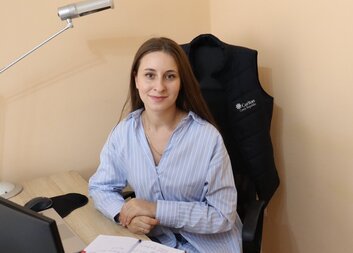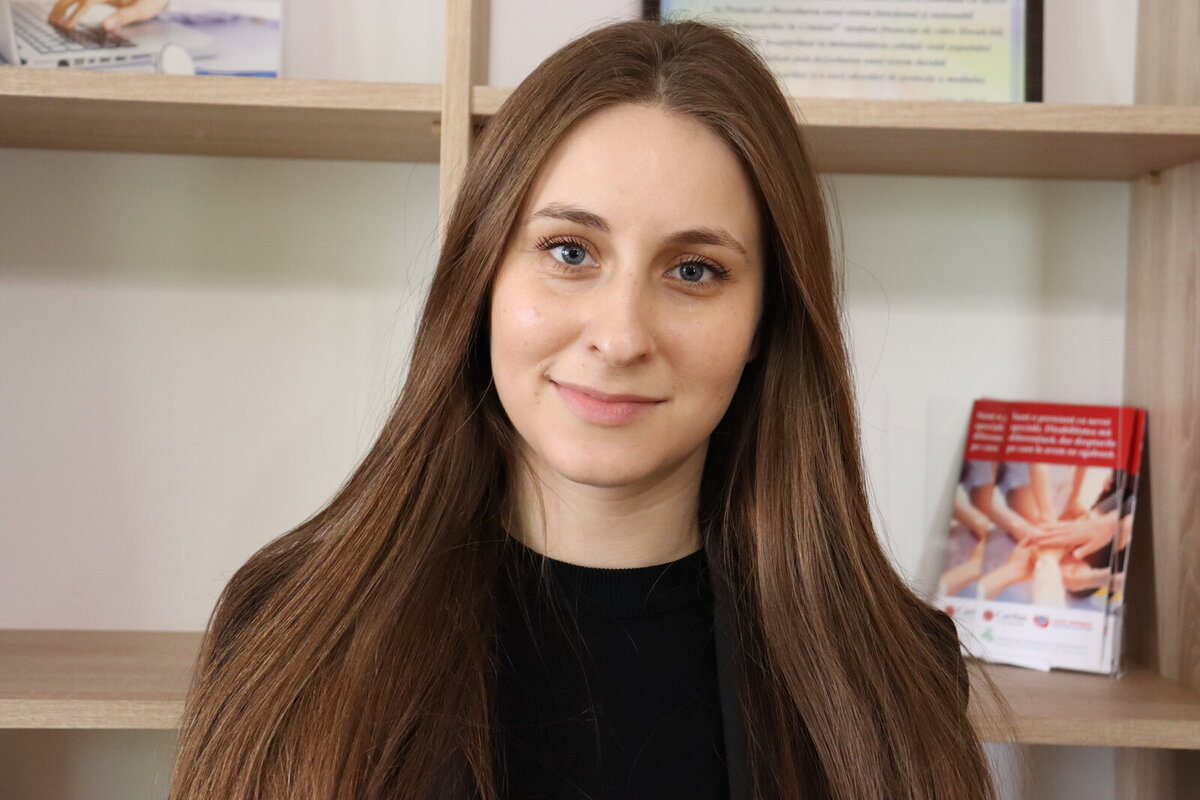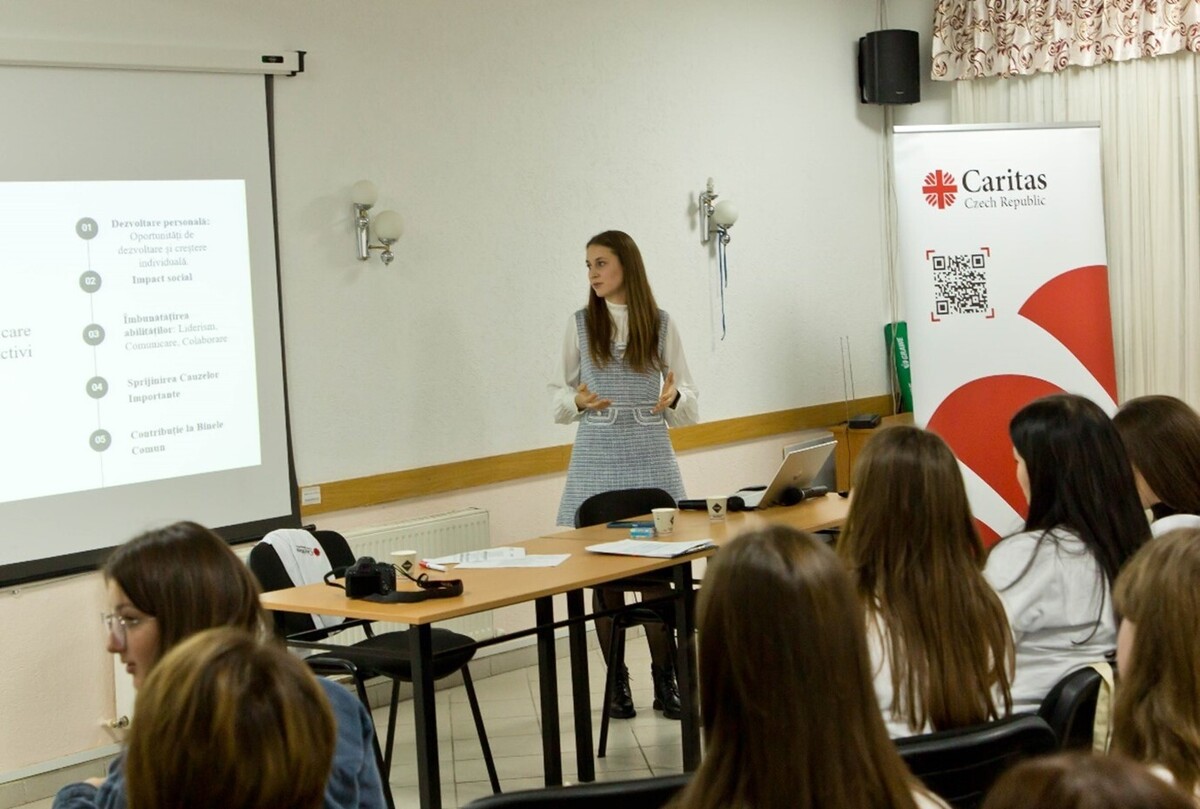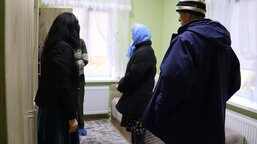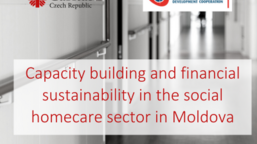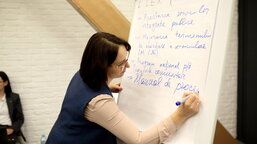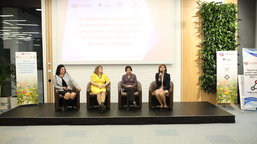Caritas Czech Republic in Moldova has launched a new innovative initiative designed to empower students to recognise and combat bullying. The goal is to blend theoretical learning with sports activities to help students effectively respond to bullying situations. Additionally, the teams aim to roll out a national awareness campaign on bullying. Mariana Novac, a project manager at Caritas Czech Republic, shares how leading these initiatives has enriched her life while positively impacting communities across Moldova.
Could you share with us how the recent initiative by Caritas Czech Republic in Moldova is addressing bullying in schools and how it aims to help students?
Our aim is to reduce bullying in 16 schools in eight districts of Moldova. With national studies showing that many students are affected - whether as victims, aggressors, or witnesses - this initiative is essential.
It is essential to stop bullying in order to make schools safer and healthier, allowing students to grow and develop in a positive way.
What are the main activities you have planned for the upcoming two months?
Activities in schools involving students start in September. During this period, our team will focus on developing a comprehensive anti-bullying curriculum, which aims to educate students about the negative impact of bullying and provide positive behavioural alternatives. At the same time, we are preparing to run a nationwide awareness-raising campaign, which will include TV spots with anti-bullying messages, to raise awareness of the problem and promote respectful and non-violent behaviour among young people.
How will this help the students in Moldova?
We aim to equip students with the ability to recognise and prevent bullying by teaching them to identify aggressive behaviours and know how to respond. Our goal is to create a safer and healthier school environment, not only addressing the issue now but also laying the groundwork for a more positive future for all students involved.
This is undoubtedly an important initiative. Can you give us some specific details on what kinds of positive role models are you planning to promote?
We are promoting positive role models through sports activities that are crucial for the overall development of young people. These activities give students a constructive outlet for their energy while teaching essential skills like teamwork and mutual respect. By engaging in team sports, students learn to collaborate, follow rules, and support one another, fostering an encouraging environment that helps counteract negative behaviours like bullying.
On the other hand, what are the main difficulties you encountered in your job?
Of course, any work involves difficulties and risks, but I prefer to focus on the positive impact and satisfaction of the projects' achievements, which helps me to stay motivated and find solutions to difficulties. Due to the complexity of interventions, I sometimes face emotional exhaustion. Small breaks help to overcome this, giving me the opportunity to return to a balance between personal time and work. Another challenge has been the resistance to change from some people. To overcome this, I adopted a collaborative approach, actively involving all stakeholders in the implementation process. Open communication and maintaining an ongoing dialog were essential to ensure understanding and acceptance of the proposed changes.
What drives you in your career, and how has your work on these projects shaped your professional goals?
I am passionate about making a real difference, especially in improving the lives of the elderly people and youth in rural areas who lack opportunities. Seeing the positive changes in the community through our initiatives fuels my commitment to this path. The experience has taught me invaluable skills like empathy and modesty, and the impact we have had motivates me to keep growing and refining my abilities, helping me move closer to my career aspirations.
Improving social services in Moldova through impact initiatives
Mariana recognises the major impact Caritas Czech Republic is having on improving the social care system in Moldova. Through innovative endeavours such as telemedicine, Caritas Czech Republic, in partnership with the Home Care Association and funded by the Czech Development Agency, ensures access to quality healthcare for all, regardless of location. As Moldova faces a shortage of workers and a growing demand for care for the elderly, Caritas has introduced the profession of home caregiver, easing the burden on the system and providing vital support to the elderly.

